School of Authentic Journalism
I Read The News Today, Oh Boy...
>
Whether or not you agree with one side or the other, we think everyone can agree that it is vital to a society and to the mental health of its participants to know as much truth as possible. Without the truth about any particular situation or problem, opinions, decisions or solutions are bound to be flawed.
But truth is a rare commodity these days in the world of news, if only because there are so many stakeholders involved in how information is delivered to the public. We read a lot of websites and blogs, we watch a lot of videos... but we always have to ask ourselves the same questions: Is what we are seeing or reading true? And if it is colored by the writer's or publisher's opinions or hidden agendas, in what way is it colored so that we can know how to interpret what we are reading? When you read an article in the Wall Street Journal, for instance, we think you have to take into account the political stance of the writer, you have to know who owns the Wall Street Journal, and you have to consider what stake they have in the issue that you are reading about. And you have to ask yourself not only "What am I reading about?" but especially, "What are they NOT telling me?".
It's exhausting, to say the least. Where, we often ask ourselves, can we just read what is really going on, without the facts being filtered through corporate-colored glasses? Who is reporting on the issues that corporations and governments don't want us to know about?
Authentic Journalism
Starting on February 3, 2010, Merida and other parts of the Yucatan Peninsula will serve as a venue for another session of the School of Authentic Journalism, a small but powerful effort to address these issues. The mastermind behind this unique educational experience is Al Giordano, an expat who has lived throughout Latin America for the past twelve years. We first met Al when he was setting up the Stop The Drug War Conference that took place in Merida during our first year here (2002). Since then, we've kept in touch and supported his quest for truth in whatever way we can.
Al Giordano Speaks
Since the opening session of the upcoming School will be open to the public, and the students and professors will be in town for almost a week, we thought that our readers might benefit from knowing more about Giordano and his vision, and we invited him to answer a few questions:
YL: Tell us about your background...
AG: Here's the official bio: "Al Giordano left a career in journalism in the United States in 1997 and moved to Mexico. Three years later he founded Narco News – www.narconews.com - which has become the most widely read news site “reporting on the drug war and democracy from Latin America” in the English and Spanish languages. Al was once a political reporter for the Boston Phoenix, and in 2007 Al made waves back up north with his prescient reporting on the campaign of Barack Obama for President. In its “winners and losers of 2008” story, Vanity Fair called Al “the prophet of the Obama paradigm shift.” That's it in a nutshell!
Now I'm coming to the Yucatán, joined by 31 students and 40 professors with The School of Authentic Journalism, an event which is co-sponsored by the Autonomous University of Yucatan (UADY) and the local daily newspaper Por Esto!
YL: What do you mean by “authentic journalism”?
Al: Journalists that do hard-hitting investigative reporting outside of the big commercial media outlets were, for years, labeled as “alternative journalists.” I have always thought, “alternative to what?” To the dying newspaper industry or the banal cable TV networks? The first time I heard the phrase “authentic journalism” was in Mérida in 1999, from Mario Menéndez Rodríguez, publisher of the daily Por Esto!, and I thought, “That’s it. That’s what I do.” We consider the commercial media with its money-driven sensationalism and often distorting coverage to be an alternative – and a not very good one - to real journalism. Thus, the term Authentic Journalism took off and became a movement among journalists like us.
YL: Why the School of Authentic Journalism, what are its goals and why now?
Al: When in 2000 Narco News, Mario Menéndez and I were sued by Banamex for publishing photographs and testimony of cocaine trafficking through the Quintana Roo properties of the bank’s owner, we received a lot of attention from media worldwide. And I began getting emails from young people – lots of them – asking, “Can I come intern in your offices?” Well, we didn’t have an office. Narco News was two guys working off laptops, one mainly in Mexico, the other in Bolivia. And these emails were blowing us away. We realized that there was a new generation of journalists and aspiring journalists that felt as we did and wanted to do this work as we do it. From there surged the School of Authentic Journalism, which held its first session in 2003 on the Yucatán Peninsula.
The goals of the School are, first, to go out and find the up-and-coming journalists of greatest talent and social conscience throughout the hemisphere (and this time, we have scholars coming from Africa, Asia and Europe, too). We spend a lot of effort to scout, recruit, and then invite good candidates and anyone else who wishes to apply to the School. That involves filling an eleven-page application with an essay requirement. From hundreds of applicants, based on their responses and on examining the journalistic work they have already done, we chose 31 scholars this year who are from or work in 24 different countries.
At the School, they will receive hands-on training in investigative journalism, documentary filmmaking, online reporting and the production of Internet, or “viral” video. They will participate in group discussions about the ethics of journalism and the dilemmas inherent in working for corporate media, state-owned media, philanthropy-supported media, and reader-supported media.
This year’s School of Authentic Journalism will have a special focus on how journalists can better report on civil resistance movements, such as those that occurred in Honduras and Iran during 2009, and happen regularly throughout this hemisphere. What is increasingly happening is the big TV news networks have become dependent on video footage posted to YouTube and other online sites to be able to report those stories, because the regimes they are opposing engage in so much censorship, repression and expulsion of critical journalists.
On Thursday evening, February 4, the School’s keynote speaker, James Lawson, will talk about Strategic Civil Resistance and the public is invited to the Felipe Carrillo Puerto Theater of the Universidad Autónoma de Yucatán (UADY) on Calle 60 in downtown Mérida at 8 p.m. that evening. Jim was the right hand and chief strategist for Martin Luther King, Jr. from 1957 to 1968. On the night before his death, King presented Lawson to the striking garbage workers of Memphis as “the best strategist in nonviolence in the world.” It was Jim who King sent to Nashville in 1959 to organize what became the seminal lunch counter sit-ins that won desegregation of downtown businesses and galvanized the movement nationwide.
The idea is that our students will finish this ten-day intensive program with a keen understanding of the strategic dynamics behind the stories they report about civil resistance, social movements, community organizing and nonviolent campaigns.
YL: Who has inspired you in the past and who inspires you now?
AG: The humble and common people who struggle against powerful interests, organize among each other, and win those battles again and again.
YL: Why have you chosen the Yucatan again as the site for your school? How long will you be here and where?
AG: First, we loved doing the school on the peninsula seven years ago. Yucatán and Quintana Roo small business people – the hotel and restaurant owners and other vendors, the Frente Unico de Trabajadores del Volante (FUTV, the taxi drivers union) and others that help to make the school happen – are honest, good at what they do, and it is the easiest place we have ever done business. The regional food is like no other. We appreciate the support of the daily Por Esto! and the opportunity for our students to learn from its publisher, don Mario. I consider him probably the greatest living journalist in the hemisphere today; he reported the struggles from Cuba, Colombia, Bolivia, Venezuela and even Vietnam during previous decades, and has built the third most widely-read daily newspaper in Mexico in just 18 years, at a time when the rest of the newspaper industry is dying. This is also a strong attraction. I consider don Mario to be my teacher in authentic journalism, and it is a thrill to be able to share him with our other students and professors.
YL: Who is coming to attend the school? Who is teaching? Give us some highlights...
AG: There is lots to read at www.narconews.com about the School, and during its sessions our students will be reporting on the content of the sessions, as well as producing online videos with much of the curriculum. So people can “attend” right from their home computers. All that will be happening via Narco News.
Your readers can meet our all-volunteer faculty here: http://www.narconews.com/Issue60/article3813.html
And this year’s scholarship recipients, here: http://www.narconews.com/Issue62/article3938.html
The professors include the renowned documentary filmmakers Greg Berger and Jill Freidberg, TeleSur morning anchor Lourdes Zuazo – who will be broadcasting live each morning from the campus to the entire continent – and Argentine public TV anchor Paloma Garcia. TeleSur US bureau chief Reed Lindsay and Venezuela Minister of Information and Communications Blanca Eekhout – both graduates of the 2003 sessions in Yucatán – will be returning as professors. The US investigative journalist Bill Conroy and another from Brazil, Natalia Viana, will be leading the investigative reporting work group. And Mexican journalist Luisa Ortiz will, together with former Narco News editor Dan Feder, will lead the online reporting group. Jim and Ellen Fields of the award-winning Yucatan Living website will be teaching about videography. There are more professors than students, and we all consider ourselves to be learning a lot at this event.
As for where, we will prominently credit our host hotels and restaurants after the school has come and gone. There are always people who show up unannounced wanting to attend and we have a closed campus and a very strict policy that we can’t fit anyone else in. However, the public is invited to attend the James Lawson presentation on February 4 downtown.
YL: What do you hope to have achieved by the end of this session of the School?
AG: By the end of this session, we hope that about 70 of us will be better trained, prepared and fired up and ready to go out and do more and better and faster and more coherent journalism in service of real people.
YL: How is the School related to your other venture, NarcoNews.com?
AG: It is the best way we keep replenishing our ranks of correspondents all over the hemisphere. People will be reading and watching reports from these students via Narco News for years to come, just as today you can read the work of previous graduates there.
YL: What is The Field? Are you still covering American politics? If so, where and how?
AG: The Field is my blog, at Narco News, mainly about US politics. It began in 2007 when I started covering the Obama presidential campaign and, specifically, the community organizing aspects of it. The Field has brought another very large group of readers to Narco News, including US political reporters and junkies. It gets a lot of attention up North, including in Congress and at the White House. Who would have thought that by moving South of the Border, I would eventually become a more closely followed political reporter inside the US about US politics? It’s like having the best of both worlds, living in Latin America and still reporting the big stories back in my country of birth. I feel like a very lucky guy.
YL: What do you think are some of the most pressing and important topics in the news these days that are not being covered adequately by the mainstream press?
AG: The earthquake recovery in Haiti is being heavily covered by the international media, but badly so. They invent stories of violence and looting where none has happened. We have two scholarship recipients – Jeremy Dupin and Ansel Herz – as well as professor and graduate Reed Lindsay on the ground in Haiti right now telling a different, more honest, story: about how the Haitian people, with international aid slow to get to them, dug out from the rubble themselves, with no active government, and have self-organized to help each other survive this terrible situation.
I spent most of the summer in Honduras, reporting on the coup d’etat and the civil resistance against it, a story that the international media just dropped after a few weeks.
Basically, all stories in Latin America go unreported, or poorly reported, by the US and international news media. But for 365 days a year, we at Narco News are doing real journalism from these places, in Spanish and in English. I think for the English-speaking readers it is an especially irreplaceable source of accurate information from the ground level of events. They just can’t get it anywhere else.
YL: How do you think the role of the journalist has changed from fifty years ago? How do you expect it to change in the next five to ten years?
AG: Fifty years ago network TV was getting its sea legs through three main networks in the United States, each heavily centralized and their news departments, along with the big newspapers and wire services, would pretty much decide what people did or did not hear about events in the world and in their own land.
In the past ten years, we have been a vital part of a movement in online journalism that has crashed the gates and broken that monopoly of a few over the issue that information should belong to everyone. It was our court victory against Banamex that for the first time made it a tenet of US law that Internet journalists are covered under the same First Amendment protections as the New York Times. That was huge, for us, and for the Internet.
YL: What’s next for the School of Authentic Journalism after this session? Will there be another in six months? A year? A permanent home? More funding? What does the School need going forward in order to achieve its goals?
AG: It costs more than $40,000 to do one of these school sessions because we don’t charge tuition to any student. We pick them based on their merit alone and, for those who can’t afford it otherwise, we pay their air fare, lodging, food and other costs. We are fortunate in having received matching support this year from the International Center on Nonviolent Conflict, and the rest was donated by our readers through The Fund for Authentic Journalism, which has a website that takes donations at: www.authenticjournalism.org.
If we can raise that amount again this year we hope to do this again in 2011.
>
The School of Authentic Journalism is not open to the public, other than the keynote speech by Reverend Lawson mentioned above. However, if you would like to donate to this cause, we encourage you to do so (see below). And for continuing in-depth coverage of issues affecting Latin America, bookmark the Narco News site, which despite its name, covers many more issues than the Drug War. Al's blog, The Field, adds an important independent, thoughtful and measured analysis to the news of the day in the United States, and is worthy of a bookmark as well. The students who attend this session of the School of Authentic Journalism will spread out across the globe and begin reporting on the issues before them, and we're sure that you will read and see their reports for many years to come.
*****
The original Banamex ruling that gave Internet Journalists First Amendment Rights in the US (and put Narco News on the map...)
The original Stop The Drug War Conference held in Merida in 2002
The Field, Al's blog about US Politics. Read here his recent tribute to Howard Zinn.
Narco News, Al's original and ongoing website reporting on issues around the world, but especially Latin America
Want to donate? www.authenticjournalism.org
And remember, James Lawson speaks at the Felipe Carrillo Puerto theatre on Calle 60 at Calle 57 on Thursday, February 4 at 8 pm.
First article from the School of Authentic Journalism reporting on the first few days: http://www.narconews.com/Issue64/article4043.html
An interview with Mario Menendez, the original Authentic Journalist and the inspiration (among others) for this school.
Watch "Where are the Maya?", a documentary produced by the 2010 School of Authentic Journalism




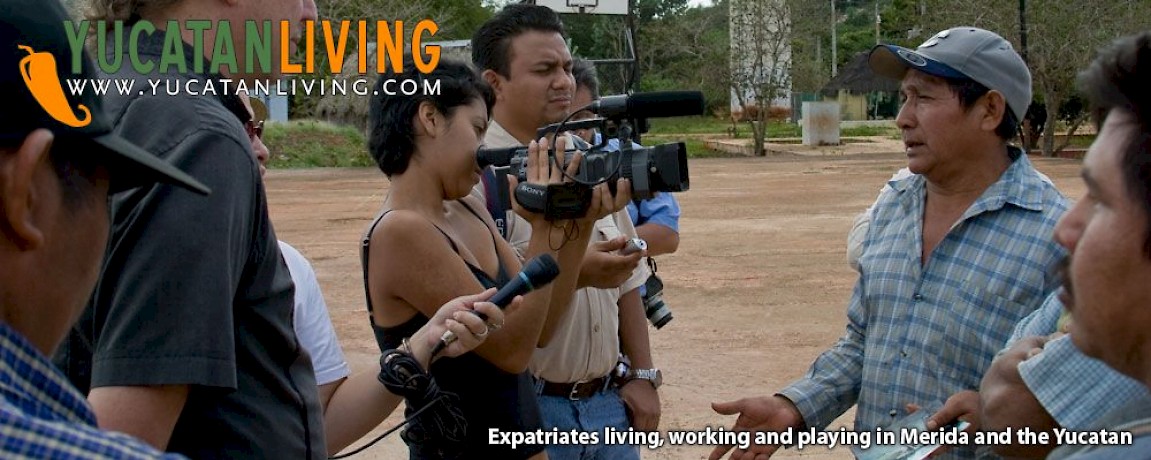


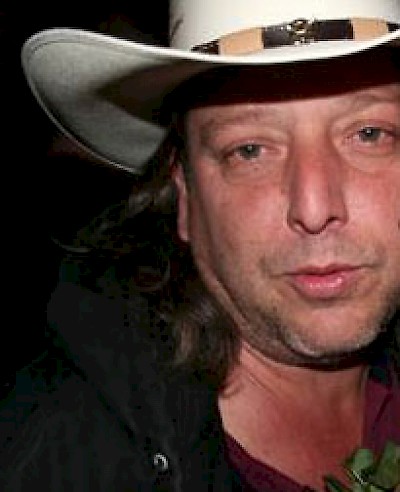
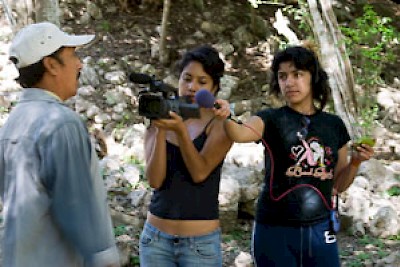
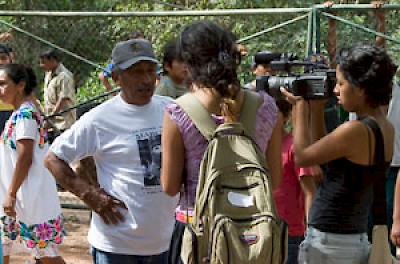
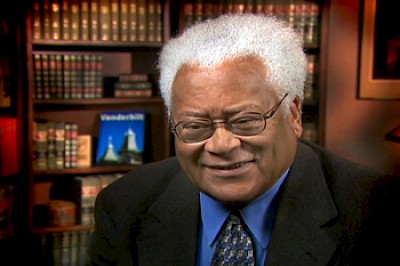
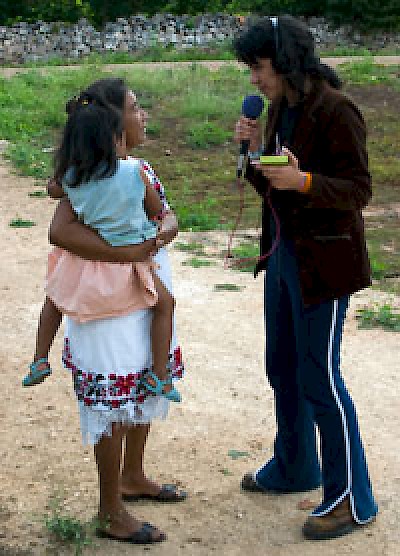
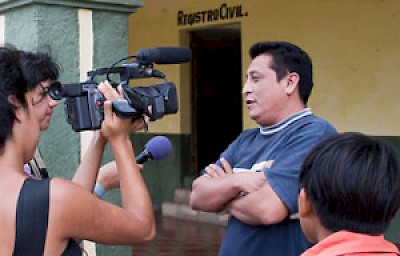
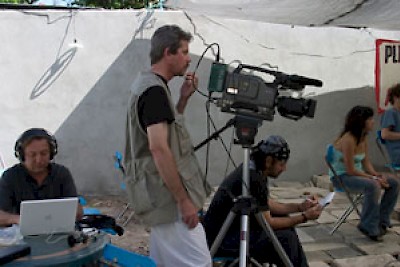

Comments
tai aguirre 16 years ago
Thank you for a beautiful article! This is so incredible, so refreshing… this exists?? Never thought a New Yorker would have to ask such a question.
You touched my roots with this most revolutionary concept. I am planning a trip to be Merida July 30th into August. Would anyone from Working Gringos be able to interview with me for the show?
My Best Wishes
Tai Aguirre, Executive Producer. The Expat Showâ„¢
Reply
Kevin 16 years ago
Great article! I have started my own newspaper, magazine and TV news shows. (I'm also an independent newsmaker.) My question is, do you think now is a good time to start an English speaking paper in the Yucatan? (Can't find one.) And if so, love to have you on as a paid reporter. I'm not talking about a huge broadsheet - but something smaller, tab sized maybe. The news would be "real" stuff along with the typical categories found in a paper.
Regarding the article, I never got a journalism degree. I just started reporting and put in print what people actually said and what really happened. The stories got to be so "tell it like it is" that from time to time the Town or City Clerk would ask me for my stories to be used as minutes.
Thank you and I have deeply appreciated some of your articles!
Reply
alex bolanos 16 years ago
very well said casi yucateco! i wish you were a news reporter or someone in charge of mass media in any country, i know you will give a voice to those who dont have it!
Reply
Daily Digest for January 31st » Comeuppance: Lo Que Has Guardado 16 years ago
[...] Shared The School of Authentic Journalism Nears Mexico’s Yucatán Peninsula. [...]
Reply
CasiYucateco 16 years ago
Across the world, there are very few voices for the little people any more.
What were once news sources -- independent newspapers and radio stations -- have now been bought up by major corporations who definitely have their own agendas to push. Chief among those are misdirecting the attention of the public from the massive corruption and dishonesty among the wealthy.
I'm talking about the fact that Goldman-Sachs sees and pre-trades on every trade that takes place on the NYSE. They have government-endorsed guaranteed profits. Surprised they were so instantly profitable after being "broke?" You needn't be. AIG and the others who are raking in billions and handing out enormous bonuses while the unemployment rate is above 10% (U3) and nearly 18% (U6).
The best period for the American middle class was from the late 1930s through the earliest 1970s when everyone agreed that government needed to be funded to provide reliable services for a stable society. Now, people have been manipulated into believing that cutting the legs off of government will benefit them. Instead, the truth is that bridges fall down, public health suffers and the threads unravel.
As Warren Buffett famously said, "Yes, there is a class war, and we (the weathly) are winning." He went on to protest the unfairness that his secretary pays a higher marginal tax rate on her labor than he does on his billions.
"J" above is worried that the conservative Honduran government line -- representing the corporate overseers -- is not adequately represented. Yet, she knows what that point of view is -- she got that information somewhere. The government PR was spread.
She only complains that others do not accept the self-interest of big business and the ruling class over the will of the people. The very term "banana republic" comes from the big corporations who have run Central American politics for two centuries.
Each time the balance of power tilted too much toward the little people, these same corporations were able to call upon the US military to enforce their profit-taking and slave labor. Whether the marines landed to put down popular rebellions or arms were provided to government death squads to kill indigenous peoples by the thousands, the US has enforced the power of profit over the lives of little people.
That's what accurate reporting would tell you. But instead, the millions are concerned over Tiger Woods' marriage and what Apple's new product will do.
"The news" whose job it is to "comfort the afflicted and afflict the comfortable" is nothing more than entertainment these days. It could use a lot of improvement.
Reply
alex bolanos 16 years ago
however, i must state that i havent read narco news, so it may also become one of my favorite websites! looking forward to it!!!!!
Reply
alex bolanos 16 years ago
Hello people!
I am a Mexican citizen living "illegally" in the us. If anyone wants to watch and hear news from a source very much different from major media outlets please check out realnews.com. Remember, today's news are "weapons of mass distraction". Check out something closer to reality than what you normally watch. Thank you.
Reply
Jonna 16 years ago
I don't think there is a source of unbiased news because I doubt humans are capable of keeping their wishes and beliefs out of the story. I would say that calling what you are teaching "truthful and accurate journalism" suggests that what you are reporting is accurate and truthful. So, let me ask you this. How much did you report on the vandalism and violence of the 'civil resistance' in Honduras? How much did you cover the enormous support for President Micheletti among Hondurans? How much coverage did you give to the polls in Honduras that clearly showed that most Hondurans did not want Zelaya to get amnesty but wanted him tried for his crimes? My guess is that these did not seem important or did not match what you consider "truth". They are accurate however. If you reported them, gave your reasons for thinking them unimportant and allowed your readers to find a middle ground of truth, I'd have a lot more respect for your calling yourself a teacher of "truthful and accurate journalism".
Reply
Al Giordano 16 years ago
Hello Jonna,
Where in this interview do I ever claim to be unbiased?
Here is a clue: Any journalist who claims to be "objective" or unbiased is either a con artist liar or so unaware of himself that you can't trust anything he writes or reports.
Authentic Journalism is about truthful and accurate journalism, and that includes disclosing and making one's biases known to all.
I will ask you back: What newspaper or reporter do you think *is* "unbiased"? You will not find a single one in this human race.
Warmest regards,
Al Giordano
Reply
Working Gringos 16 years ago
Hi Jonna,
No one is suggesting that Narco News or Por Esto do not have biases.
What we are reporting about is the School of Authentic Journalism that is teaching reporters how to report on stories that other, larger media companies are often unwilling to report on, due to THEIR biases. The school is attempting to train reporters to seek out and report on the stories that are often hidden or underreported or even censored in the mainstream media. (see Project Censored http://www.projectcensored.org/top-stories/category/y-2009/ or Time Magazine's list http://www.time.com/time/specials/packages/article/0,28804,1945379_1944495,00.html)
It's a touchy subject, no doubt about it. The thing is, it's happening in Merida and we thought you might want to know about it.
Reply
Jonna 16 years ago
Please, it is disingenuous to pretend that the Narco News and Por Esto do not have a bias of their own. You have to go through the same mental hoops when reading either of those as you would with the WSJ or Fox News. They are just as biased and just as willing to ignore facts that are inconvenient to their viewpoint. The implication that this isn't so in your article makes the whole thing suspect.
Reply
(0 to 11 comments)Next »